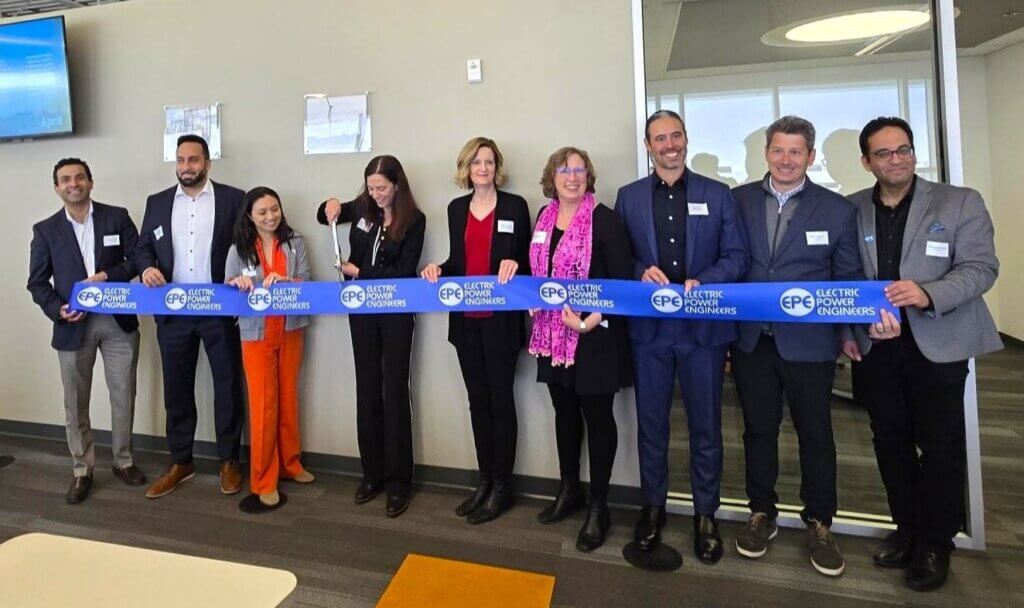Accelerator Centre welcomes 23 startups into the new UN Sustainable Development Cohort of AC:Studio
By: The Accelerator Centre Selected startups will receive up to $100,000 in seed funding and work with the AC and…
Different images come to mind when people talk about power plants. Whether it’s a hydroelectric plant like the Hoover Dam or a nuclear plant with its iconic cooling towers, each one comes with its own complex demands for construction and operation.
These massive infrastructure projects serve as the beating hearts of communities, powering everything from homes to hospitals and industry. Behind the scenes, bringing a power plant online takes deep expertise in energy systems and market dynamics — something Dr. Mohamed Ahmed, PhD, knows well.

Ahmed is the Senior Director, Energy Market Analysis for Electric Power Engineers (EPE). Founded in 1968, EPE is one of the world’s leading power system engineering and consulting firms. EPE partners with developers from early-stage planning through to project commissioning. As a technology-agnostic firm, they work on everything from renewable energy to nuclear, and everything in between.
Headquartered in Austin, Texas, EPE has a growing global footprint, with offices in Vancouver, Panama City (Panama), and Beirut (Lebanon). Since expanding into Canada in 2023, EPE has opened new offices in Mississauga and Waterloo, located inside the David Johnston Research + Technology Park.
“We are working to have a much larger presence here in Canada. The choice of Waterloo was strategic to be close the University of Waterloo as we look toward doing more collaborative research projects,” Ahmed said.
Ahmed leads a team focused on helping clients understand the financial side of power infrastructure, from modelling revenue forecasts to planning return on investment. But EPE’s value goes far beyond just market strategy.
“Our goal is to be a one-stop shop for clients,” said Ahmed. “A lot of firms offer pieces of the puzzle, but we’re set up to provide a holistic solution.”
EPE’s project lifecycle support spans everything from interconnection applications to final commissioning. The company has a dedicated interconnection team that helps developers navigate complex regulatory requirements, such as filing applications with provincial system operators like Ontario’s IESO. Once approvals are in place, EPE’s commissioning team supports the final testing and grid integration of the project.
“We don’t own or build anything ourselves,” said Ahmed. “We’re a consulting firm. We design, model and guide projects from start to finish, but we don’t put boots on the ground.”
While EPE’s new Waterloo office strengthens its footprint in Canada, the team’s work spans far beyond national borders.
“The choice of Waterloo was strategic to be close the University of Waterloo as we look toward doing more collaborative research projects”
~Dr. Mohamed Ahmed, Senior Director, Energy Market Analysis
“We’re not here just to serve Canadian clients,” said Ahmed. “Our teams in Canada are supporting projects in the U.S. and globally. But at the same time, we see tremendous opportunity for growth right here at home.”
EPE’s Canadian expansion is part of a broader strategy to meet growing demand for power system consulting. The company already employs nearly 100 people across the country, including more than 60 of them in Ontario, with plans to scale even further.
One of the most significant drivers of power demand is the rise of artificial intelligence (AI). As AI continues to scale, so does the need for power-hungry infrastructure like data centres. For EPE, that presents both a challenge and an opportunity.
AI data centres often require massive amounts of electricity, sometimes rivalling the demand of small towns. EPE helps clients assess whether the local grid has the capacity to handle that load, and if not, how to address the gap.
“Our job is to study how the grid will react,” Ahmed explained. “We look at everything, from wire capacity to voltage stability, to make sure the project can connect safely and reliably.”
Opening an office in the R+T Park wasn’t just about finding office space. It was a strategic move that aligns with both EPE’s growth plans and Ahmed’s personal journey.
“We wanted to be close to the University of Waterloo to collaborate on research and bring in top-tier talent,” Ahmed said. “Waterloo has one of the strongest power systems programs in North America, and we see a lot of potential to grow with the ecosystem here.”
“We wanted to be close to the University of Waterloo to collaborate on research and bring in top-tier talent.”
~Dr. Mohamed Ahmed
EPE plans to bring on interns from both undergraduate and graduate programs, with an eye toward longer-term collaboration on applied research. Ahmed sees a strong fit between the company’s practical work and the academic strengths of the university, especially as demand for power systems expertise continues to grow.
For Ahmed, the new office is also a return to where it all began. After moving to Canada from Cairo in 2008, he completed his PhD in electrical and computer engineering at the University of Waterloo and later served as an adjunct professor until 2017.
“It’s like a dream come true,” he said. “To come back to campus, to the place where I started my journey in Canada, and now help shape the next generation of engineers is incredibly exciting.”
With EPE’s deep expertise, growing Canadian presence and strong academic ties, the company is well-positioned to help power the next generation of infrastructure in Canada and around the world.